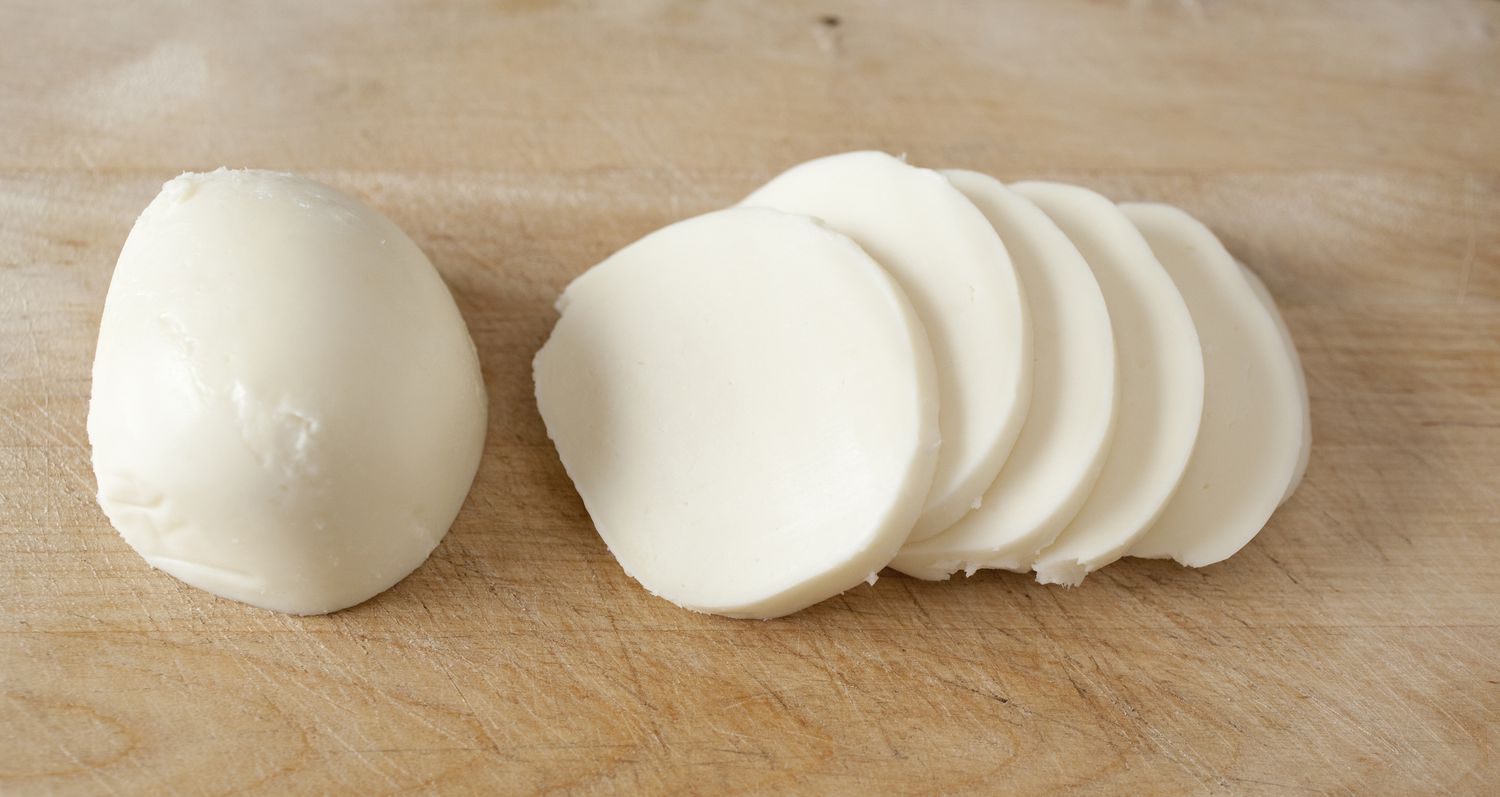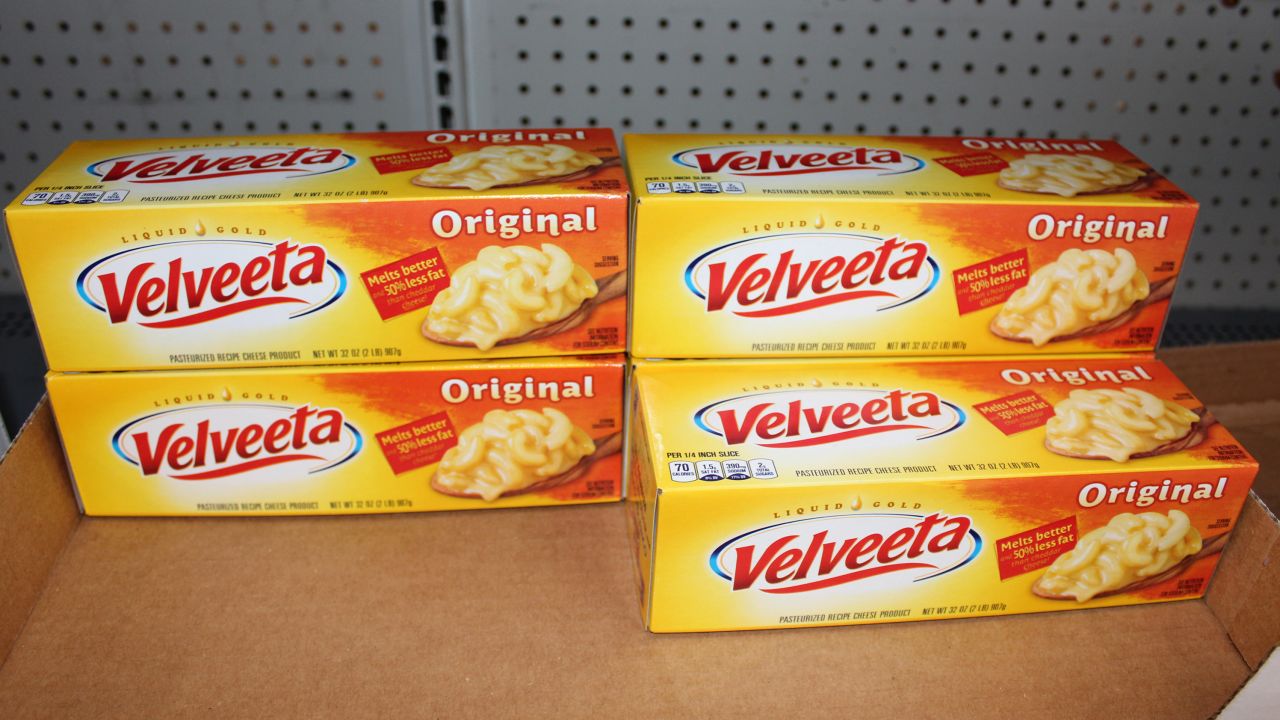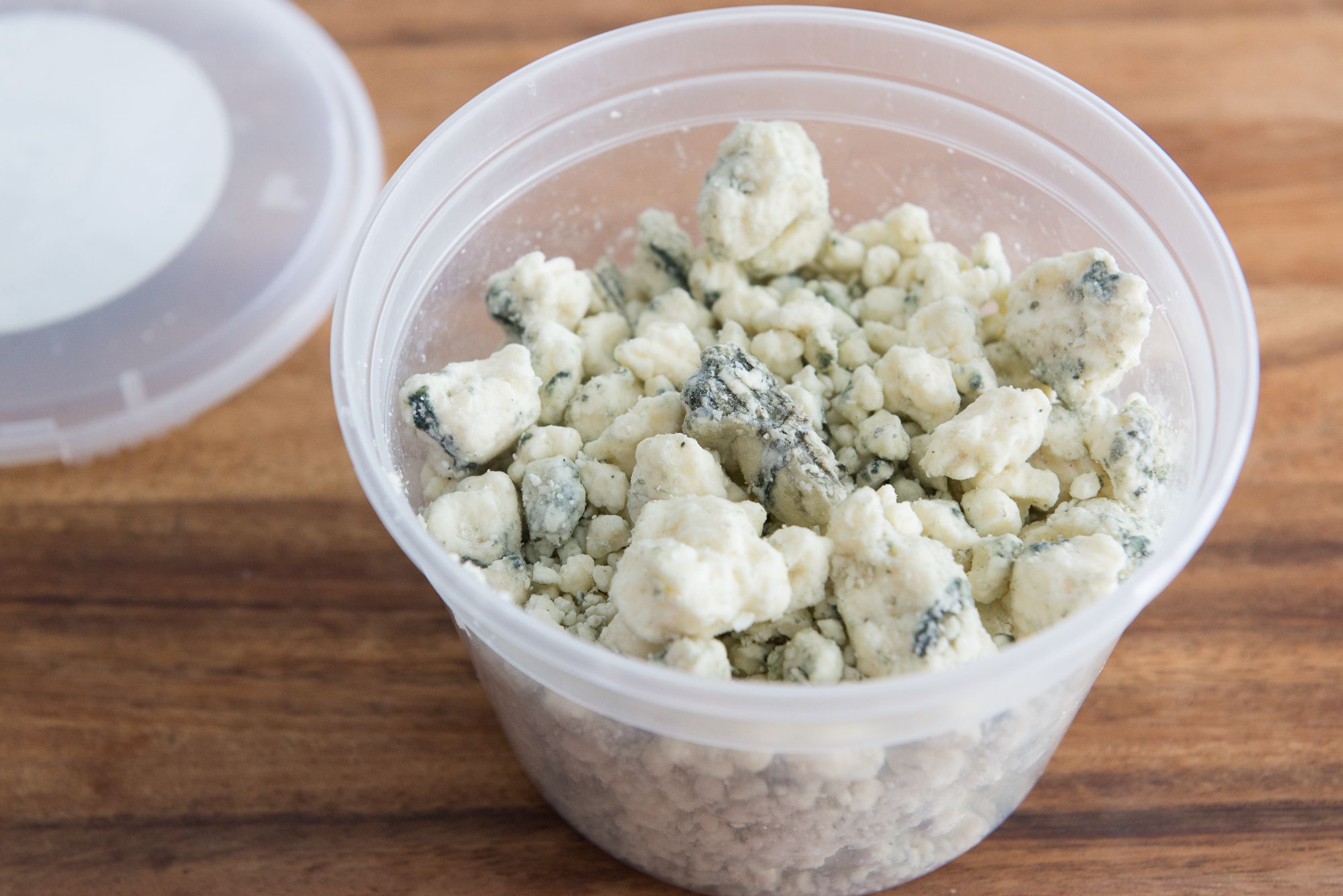

Articles
How To Store Parmesan Cheese
Modified: February 23, 2024
Looking for articles on how to store Parmesan cheese? Check out our helpful guide for tips and tricks to keep your Parmesan cheese fresh and flavorful for longer.
(Many of the links in this article redirect to a specific reviewed product. Your purchase of these products through affiliate links helps to generate commission for Storables.com, at no extra cost. Learn more)
Introduction
Welcome to the world of Parmesan cheese! Parmesan, also known as Parmigiano-Reggiano, is a hard and granular cheese that originated in Italy. It is renowned for its rich and nutty flavor, making it a popular choice for grating over pasta, salads, and soups. Whether you’re a cheese connoisseur or a casual cheese lover, it’s crucial to understand how to properly store Parmesan cheese to maintain its freshness and flavor.
In this article, we will guide you through the best practices for purchasing Parmesan cheese and provide comprehensive storage guidelines to ensure its longevity. We will also cover topics such as refrigeration, freezing, thawing, and testing for spoilage. So let’s dive in and discover the secrets to keeping your Parmesan cheese in prime condition.
Key Takeaways:
- Properly storing Parmesan cheese is crucial for maintaining its freshness and flavor. From purchasing authentic cheese to wrapping and refrigerating it correctly, following these guidelines will ensure your Parmesan stays at its best for longer.
- When it comes to Parmesan cheese, proper storage is key. From selecting the right cheese to wrapping, refrigerating, freezing, and thawing, these comprehensive guidelines will help you preserve the rich and nutty flavor of Parmesan cheese for an extended period.
Read more: How To Store Parmesan Cheese Block
Purchasing Parmesan Cheese
When it comes to purchasing Parmesan cheese, freshness and quality are of utmost importance. Here are some tips to help you choose the perfect Parmesan:
- Look for the PDO (Protected Designation of Origin) label: This label ensures that the Parmesan cheese you’re buying is authentic and made in a specific region in Italy, where it undergoes strict production standards.
- Opt for whole pieces: Buying a whole wheel or wedge of Parmesan cheese allows you to control the storage and aging process, which ultimately affects the flavor and texture.
- Check the age: Parmesan cheese is typically aged for a minimum of 12 months, but some are aged for even longer, resulting in a more intense flavor. Consider your personal preference when selecting the age of the cheese.
- Inspect the rind: The rind of Parmesan cheese should be hard, dry, and free from mold or cracking. A well-preserved rind indicates proper aging and care.
- Smell the cheese: Aged Parmesan cheese should have a distinctive, pleasant aroma. Avoid cheese that has a strong, ammonia-like smell, as it may indicate spoilage.
Purchasing Parmesan cheese from a reputable cheese shop or specialty store can ensure that you’re getting the best quality product. Don’t hesitate to ask the cheesemonger for their recommendations and guidance in selecting the ideal Parmesan cheese for your needs.
Storage Guidelines for Parmesan Cheese
Proper storage is essential to maintain the freshness, flavor, and texture of Parmesan cheese. Here are some guidelines to help you store your Parmesan cheese correctly:
Wrapping the Cheese
Firstly, ensure that you wrap the Parmesan cheese properly to protect it from moisture and air. Wrap it tightly in wax or parchment paper, followed by a layer of plastic wrap or aluminum foil. This double-layered wrap will prevent the cheese from drying out and protect it from absorbing any external odors.
Refrigerating Parmesan Cheese
It is recommended to store Parmesan cheese in the refrigerator, preferably in the vegetable or cheese drawer. The temperature of the refrigerator should be set to around 40°F (4°C) to maintain the cheese’s freshness. Avoid placing the cheese near foods with strong odors, as it can absorb the flavors of other ingredients.
Read more: How To Store Fresh Parmesan Cheese
Freezing Parmesan Cheese
If you have a large quantity of Parmesan cheese or want to extend its shelf life, freezing is a viable option. However, note that freezing can affect the texture of the cheese, making it slightly crumbly. To freeze Parmesan cheese, wrap it tightly in plastic wrap or aluminum foil, followed by a layer of freezer-safe plastic bag or container. Label the package with the date to keep track of its freshness.
Proper Thawing Techniques
When you’re ready to use the frozen Parmesan cheese, it’s important to thaw it properly. Transfer the cheese from the freezer to the refrigerator and allow it to thaw slowly overnight. Avoid using methods like microwave or hot water to defrost the cheese, as it can affect the texture and flavor.
Remember, once you thaw Parmesan cheese, it is not recommended to refreeze it. Therefore, portion the cheese according to your usage to avoid wastage.
By following these storage guidelines, you can ensure that your Parmesan cheese stays fresh and delicious for an extended period. Now let’s move on to understanding the shelf life of Parmesan cheese and how to test for spoilage.
Wrapping the Cheese
Properly wrapping Parmesan cheese is crucial for maintaining its freshness and protecting it from moisture and air. Here are some guidelines to follow when wrapping your Parmesan cheese:
- Start with a clean and dry piece of wax or parchment paper. This will create a barrier between the cheese and the outside environment.
- Place the Parmesan cheese in the center of the paper and fold the edges up and over the cheese, wrapping it tightly. Make sure all sides of the cheese are covered.
- Next, wrap the cheese with a layer of plastic wrap or aluminum foil. This added layer will provide extra protection from air and moisture.
- Wrap the cheese tightly, ensuring there are no gaps or openings. This will help maintain the cheese’s texture and prevent it from drying out.
- If you’re using plastic wrap, you can twist the ends to create a tighter seal. For aluminum foil, fold the edges neatly to secure the wrapping.
It is important to note that the wrapping should be done immediately after purchasing or using the cheese. The longer the cheese is exposed to air, the more it can dry out and lose its flavor and texture.
Remember to label the wrapped cheese with the date of purchase or wrapping. This will help you keep track of its freshness and determine when it needs to be used.
By properly wrapping your Parmesan cheese, you are creating a protective shield that will help preserve its quality and flavor. Now that you know the proper wrapping technique, let’s explore the best way to store Parmesan cheese in the refrigerator.
Refrigerating Parmesan Cheese
When it comes to storing Parmesan cheese, refrigeration is the key to maintaining its freshness and flavor. Follow these guidelines to ensure optimal storage in your refrigerator:
- Choose the right spot: Find a designated spot in your refrigerator to store the Parmesan cheese. Ideally, it should be in the vegetable drawer or a separate cheese drawer if your fridge has one. These locations provide a slightly higher humidity level, which helps prevent the cheese from drying out.
- Temperature control: Set your refrigerator temperature to around 40°F (4°C). This temperature range is ideal for keeping the cheese fresh and preventing the growth of bacteria. Avoid placing the cheese in the door shelves, as they are exposed to fluctuating temperatures when the door is frequently opened.
- Avoid cross-contamination: To maintain the original flavors of the Parmesan cheese, it’s important to store it away from strong-smelling foods. The cheese has the ability to absorb odors, so keep it far from items like onions, garlic, and other pungent ingredients.
- Keep it wrapped: Remember to keep the Parmesan cheese tightly wrapped in wax or parchment paper, followed by a layer of plastic wrap or aluminum foil. This will protect the cheese from moisture and excessive drying while also preventing it from developing any off-flavors.
- Rotate the cheese: If you have multiple pieces of Parmesan cheese, it’s a good idea to periodically rotate them. This will ensure that each piece gets equal exposure to the controlled refrigerator environment, maintaining their freshness and flavor more evenly.
By following these refrigeration guidelines, you can extend the shelf life of your Parmesan cheese and enjoy it at its best quality. However, if you find that you won’t be able to consume the cheese within a reasonable time frame, freezing it is an alternative option.
In the next section, we will discuss the proper techniques for freezing Parmesan cheese and how to thaw it when you’re ready to use it.
Read more: How To Store Parmesan Crisps
Freezing Parmesan Cheese
If you have a surplus of Parmesan cheese or want to preserve it for a longer period, freezing is a viable option. Freezing Parmesan cheese can help maintain its flavor and quality if done correctly. Here’s how you can freeze Parmesan cheese:
- Divide into portions: If you have a large piece or block of Parmesan cheese, consider dividing it into smaller portions before freezing. This will allow you to thaw only what you need each time without needing to thaw the entire piece.
- Wrap it well: Wrap each portion tightly in plastic wrap or aluminum foil, ensuring that there are no openings or gaps. For added protection, place the wrapped portions in a freezer-safe plastic bag or airtight container.
- Label and date: Before placing the Parmesan cheese in the freezer, label each wrapped portion with the date of freezing. This will help you keep track of its freshness and determine its shelf life.
- Place in the freezer: Put the wrapped portions of Parmesan cheese in the freezer. Make sure to place them where they won’t be crushed or exposed to air and odors from other freezer items.
When properly frozen, Parmesan cheese can be stored in the freezer for up to six months. However, it’s important to note that freezing may alter the texture of the cheese, making it crumbly or slightly drier.
Now that you have your Parmesan cheese properly frozen, it’s important to know how to thaw it properly when you’re ready to use it.
In the next section, we will discuss the proper techniques for thawing Parmesan cheese to preserve its flavor and texture.
Proper Thawing Techniques
Thawing Parmesan cheese properly is essential to maintain its flavor and texture. Here are some techniques to ensure a successful thawing process:
- Transfer to the refrigerator: The recommended method for thawing Parmesan cheese is to transfer it from the freezer to the refrigerator. Place the wrapped cheese in the vegetable or cheese drawer, where the temperature is controlled and slightly higher than the rest of the refrigerator.
- Allow time to thaw: Give the Parmesan cheese ample time to thaw slowly in the refrigerator. Depending on the size and thickness of the portion, it can take anywhere from a few hours to overnight. Be patient and avoid rushing the thawing process to prevent any textural changes.
- Avoid room temperature thawing: While it may be tempting to thaw Parmesan cheese at room temperature to hasten the process, it is not recommended. Rapid thawing at room temperature can lead to uneven thawing, resulting in a loss of flavor and texture.
Once the Parmesan cheese has thawed completely, it is ready to use. However, it is important to note that Parmesan cheese, especially after freezing, may have a slightly different texture compared to fresh cheese. It may be slightly crumbly, drier, or less creamy.
If you thawed more Parmesan cheese than needed, it is not recommended to refreeze it. Thawed Parmesan cheese should be consumed within a few days for the best flavor and quality.
Now that you are well-versed in the proper thawing techniques for Parmesan cheese, let’s move on to understanding its shelf life and how to test for spoilage.
Shelf Life of Parmesan Cheese
The shelf life of Parmesan cheese depends on various factors, including the age of the cheese, storage conditions, and whether it has been opened or not. Here are some general guidelines for the shelf life of Parmesan cheese:
- Unopened Parmesan cheese: When stored properly in the refrigerator, unopened Parmesan cheese can last for several months beyond the labeled expiration date. The cheese will continue to age and develop flavor over time, but it should remain safe to consume as long as there are no signs of spoilage.
- Opened Parmesan cheese: Once the package of Parmesan cheese has been opened, it is more susceptible to moisture and air, which can accelerate the aging process. On average, opened Parmesan cheese can last for about 3 to 6 weeks in the refrigerator.
It’s important to note that while Parmesan cheese may still be safe to eat after the recommended shelf life, the flavor, texture, and quality may deteriorate over time. It’s always best to use your senses and perform a simple inspection before consuming.
In the next section, we will discuss how to test Parmesan cheese for spoilage to ensure that it is safe to consume.
Testing for Spoilage
It’s important to be able to identify signs of spoilage in Parmesan cheese to ensure that it is safe to consume. Here are some ways to test for spoilage:
- Visual inspection: Examine the Parmesan cheese for any visible signs of mold, unusual discoloration, or sliminess. If you notice any of these signs, it is an indication that the cheese has spoiled and should not be consumed.
- Smell test: Take a whiff of the Parmesan cheese. Spoiled cheese will have an off or foul odor, usually described as ammonia-like or pungent. Fresh Parmesan cheese should have a pleasant and nutty aroma.
- Taste test: If the Parmesan cheese passes the visual and smell test, you can proceed to taste a small piece. Spoiled cheese will have a strong, unpleasant taste that is significantly different from its usual flavor profile.
If you notice any signs of spoilage, it’s best to discard the Parmesan cheese to prevent any potential foodborne illnesses. It’s always better to err on the side of caution when it comes to consuming perishable food items.
Remember to practice good hygiene when handling Parmesan cheese to avoid cross-contamination with bacteria from other food items. Use clean utensils and hands when cutting or grating the cheese, and make sure to store it properly after each use.
Now that you know how to identify spoilage in Parmesan cheese, let’s move on to some tips for maximizing its freshness and flavor.
Read more: How To Store Grated Parmesan Cheese
Tips for Maximizing Freshness
To maximize the freshness and flavor of your Parmesan cheese, consider these tips:
- Grate as needed: Instead of pre-grating the cheese, it’s best to grate or shave Parmesan cheese as you need it. This helps to preserve its flavor by minimizing exposure to air.
- Avoid excessive handling: Handle the Parmesan cheese with clean hands or utensils to prevent the transfer of bacteria. Excessive handling can also lead to unnecessary moisture on the cheese, which can affect its texture and flavor.
- Store in small portions: If you have a large piece of Parmesan cheese, consider dividing it into smaller portions. This way, you can use one portion at a time while keeping the rest of the cheese well-wrapped and protected.
- Use proper grating tools: Utilize a fine grater or microplane to grate Parmesan cheese. This allows for a finer texture and better distribution of the cheese’s flavor in your dishes.
- Re-wrap the cheese: After each use, re-wrap the Parmesan cheese tightly to exclude air and prevent moisture absorption. This will help maintain its freshness and prevent the cheese from drying out.
- Keep a cheese paper handy: Consider investing in cheese paper, which is specially designed to regulate moisture and airflow around the cheese. It can help prolong the freshness and quality of Parmesan cheese.
- Enjoy the rind: The outer rind of Parmesan cheese is completely edible and adds flavor to dishes like soups and stews. Don’t discard it! Instead, grate the cheese down to the rind, and once you reach it, you can use it for other culinary purposes.
By following these tips, you can ensure that your Parmesan cheese remains fresh and flavorful for as long as possible. Remember that proper storage and handling are key to preserving its quality.
Now that you’re equipped with all the knowledge for storing Parmesan cheese, let’s address some frequently asked questions to further enhance your understanding.
Frequently Asked Questions
Here are some common questions about storing Parmesan cheese:
1. Can you store Parmesan cheese at room temperature?
It is not recommended to store Parmesan cheese at room temperature. The cheese can spoil quickly and become a breeding ground for bacteria when exposed to warmer temperatures. Refrigeration is the best way to preserve its freshness and quality.
2. Can you freeze grated Parmesan cheese?
Yes, you can freeze grated Parmesan cheese. Follow the same guidelines for wrapping and freezing mentioned earlier. However, keep in mind that frozen grated cheese may clump together, so you may need to break it apart before using it.
Read more: How To Store A Block Of Parmesan Cheese
3. Can you consume Parmesan cheese if it has mold?
No, if there is mold on Parmesan cheese, it should be discarded. Mold can release toxins that are harmful to your health. It’s essential to perform a visual inspection before consuming the cheese and discard it if any mold is present.
4. How can I prevent Parmesan cheese from drying out?
To prevent Parmesan cheese from drying out, make sure to wrap it tightly in wax or parchment paper, followed by a layer of plastic wrap or aluminum foil. Storing it in the refrigerator can also help maintain its moisture levels.
5. Can I reseal the original packaging of Parmesan cheese?
If the original packaging of Parmesan cheese is resealable, you can use it to store the cheese. Just ensure that the package is sealed tightly to prevent air and moisture from entering.
6. Can I store Parmesan cheese in a cheese storage container?
Yes, a cheese storage container can be a good option for storing Parmesan cheese. Look for containers designed to regulate moisture and airflow, which can help prolong the cheese’s freshness.
These are just a few frequently asked questions about storing Parmesan cheese. If you have any specific concerns or queries, feel free to reach out to your local cheesemonger for expert advice.
Now that we have covered the frequently asked questions, let’s wrap up our article.
Store Parmesan cheese in the refrigerator in an airtight container or resealable bag to prevent it from drying out. You can also wrap it in wax paper and then place it in a plastic bag to maintain its freshness.
Read more: How To Store Block Of Parmesan Cheese
Conclusion
Properly storing Parmesan cheese is essential to maintain its freshness, flavor, and quality. By following the guidelines outlined in this article, you can ensure that your Parmesan cheese stays at its best for a longer period. Remember to:
- Purchase authentic Parmesan cheese with the PDO label and inspect its quality.
- Wrap the cheese tightly in wax or parchment paper, followed by plastic wrap or aluminum foil.
- Store Parmesan cheese in the refrigerator at around 40°F (4°C) in a dedicated space away from strong-smelling foods.
- Consider freezing Parmesan cheese if you have a surplus, making sure to wrap and label it properly.
- Thaw Parmesan cheese in the refrigerator and avoid room temperature thawing.
- Test for spoilage using visual inspection, smell, and taste.
- Follow tips for maximizing freshness, such as grating as needed, avoiding excessive handling, and re-wrapping the cheese after use.
By implementing these storage guidelines and best practices, you can enjoy the rich and nutty flavor of Parmesan cheese whenever you desire. Remember to trust your senses and discard the cheese if you notice any signs of spoilage.
With proper storage, Parmesan cheese can add depth and character to your favorite dishes, from pasta and risotto to salads and soups. So, go ahead and savor the deliciousness of Parmesan cheese while preserving its quality.
Thank you for reading, and may your Parmesan cheese always be fresh and flavorful!
Frequently Asked Questions about How To Store Parmesan Cheese
Was this page helpful?
At Storables.com, we guarantee accurate and reliable information. Our content, validated by Expert Board Contributors, is crafted following stringent Editorial Policies. We're committed to providing you with well-researched, expert-backed insights for all your informational needs.











0 thoughts on “How To Store Parmesan Cheese”